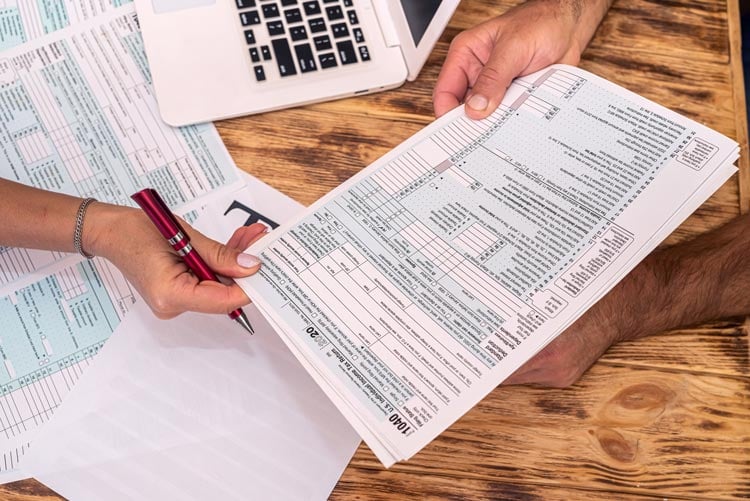
Any taxpayer who completes a 1031 exchange during the tax year must file IRS Form 8824 as part of their tax return. The form reports the amount of gain the taxpayer is deferring by employing the 1031 exchange.
What is a 1031 exchange, and how does one affect my taxes?
A 1031 exchange is a tool for deferring the taxes due on capital gains from the sale of investment property. Section 1031 of the Internal Revenue Code allows a taxpayer to defer payment of the taxes due if the proceeds from selling a real estate asset are reinvested into a different asset (or assets). So, naturally, the IRS has strict rules for how this exchange takes place.
The property the taxpayer purchases to replace the relinquished property must have both value and attached debt equal to or greater than the value and debt obligation of the asset being disposed of. However, following the IRS' parameters, the taxpayer may replace one property with more than one.
Furthermore, the taxpayer must complete the exchange within 180 days of the date that the taxpayer sells the initial property. Within that 180 days, an additional deadline requires the investor to identify potential replacement assets within 45 days. The identification process is a formal notification by the investor to their Qualified Intermediary (QI). The QI is an administrator (unrelated to the taxpayer and not permitted to be an employee, business partner, or agent of that person) who oversees the transactions, holds the funds in a separate account, and maintains the necessary documentation.
What does Form 8824 include?
Form 8824 has four sections. The first part identifies the assets involved in the transaction. Specifically, it details the relinquished and replacement properties and the relevant disposition dates. The first section also asks if the exchange included related parties. If the answer is yes, then the taxpayer must complete Section II. If the answer is negative, the taxpayer can skip to Part III.
The IRS includes the section concerning related parties because most such transactions are not permitted. A related party (in this situation) is a spouse, parent, child, sibling, another direct relative, or a corporation or trust in which the taxpayer has a fifty percent or greater interest. 1031 exchanges are only allowed in related party transactions if one of the following conditions is present:
- One party died before the transaction occurred.
- The disposition was involuntary (for example, the property was destroyed or condemned), and the parties were unaware of the conversion or threat before initiating the transaction.
- The motivation for the exchange was something other than avoidance of capital gains tax.
Part III of Form 8824 reports the realized and recognized gains and the basis for the replacement property asset. This section also details the debt for the replacement property. Specific federal employees complete part IV, which most taxpayers can ignore.
What should I be alert to when completing Form 8824?
Taxpayers should be thorough when completing the form. While the Department of the Treasury sometimes indicates that the filing is optional, skipping it is probably a bad idea. The IRS reviews the form to determine whether the exchange is eligible, so include the relevant dates and values carefully. Also, if the taxpayer begins the deal in one tax year but does not complete it until the following year, they must request a filing extension. The IRS wants the completed exchange reported on Form 8824 in the filing for the tax year in which the initial disposition occurs.
This material is for general information and educational purposes only. Information is based on data gathered from what we believe are reliable sources. It is not guaranteed as to accuracy, does not purport to be complete and is not intended to be used as a primary basis for investment decisions. It should also not be construed as advice meeting the particular investment needs of any investor.
Realized does not provide tax or legal advice. This material is not a substitute for seeking the advice of a qualified professional for your individual situation.
Costs associated with a 1031 transaction may impact investor's returns and may outweigh the tax benefits. An unfavorable tax ruling may cancel deferral of capital gains and result in immediate tax liabilities.



